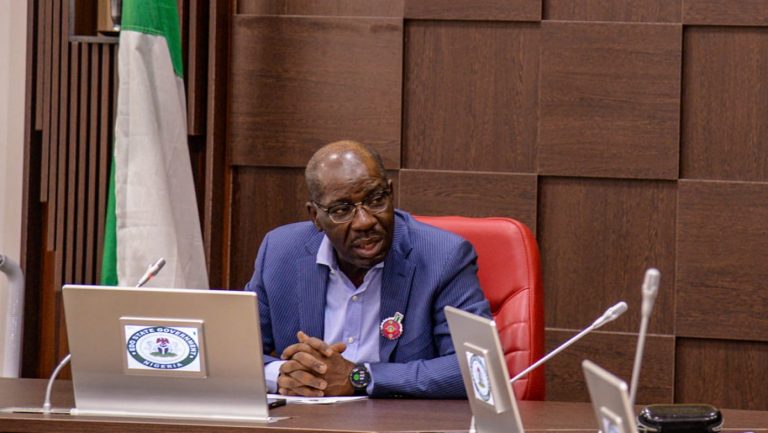Less than 40 days to the conduct of the governorship election scheduled for September 21 in Edo State, the state governor, Godwin Obaseki, signed into law on Tuesday a revised supplementary budget of N450 billion.
Arogidigba Global Journal reports that the reversed supplementary budget also came barely 100 days to the end of his second tenure as governor of the state.
Governor Obaseki signed into law on May 22, 2024, N409, 217,894,248, 87 billion supplementary after the approval by the State House of Assembly.
Arogidigba Global Journal recalls that the amount was N17.5 billion higher than the
N342.825,969,909,21 billion appropriation bill already assented by the governor on December 22, 2023.
Obaseki had hinged the supplementary budget on the new monthly minimum wage of N70,000 approved for the state workers as well as to enable him to finish his eight-year administration of the state.
However, barely three months after assenting to the supplementary budget, the state government has again signed into law the N450 billion revised supplementary budget.
Speaking after assenting to the reversed supplementary budget, Governor Obaseki said the government is appropriating about N5 billion to boost the growth of small businesses in the state.
Obaseki opined that to grow the economy of the state, the budget size of the state needed to be doubled.
He noted that what the government has done in Edo is not just to double the budget size but to ensure more efficiency of the budget.
According to him, we had to come back to the House to request a revision and a supplementary allocation of the existing 2024 budget. After proper review and analysis, we found out that the 2023 budget was about N225 billion and at that time, the exchange rate was about N750.
“What is different about this budget, which has been revised, is that we are almost certain that we have a 95 per cent performance on the budget. As of half a year, we are almost at 100 per cent relatively speaking. We don’t see the situation changing at the end of this year.
“What is more important for Edo people that we represent is that with this supplementary provision, most provisions are now going to capital expenditure. Whereas at the last evaluation, the budget ratio was about 55 per cent for capital and 45 per cent for recurrent.
“This appropriation is now 57 per cent for capital and 43 for recurrent expenditures. You can see that a lot more efficiency and resources are going to our people.
“We also used the opportunity of this revision to address a very important issue raised during the last citizens’ protest in Nigeria. Edo joined Nigerians to voice their concerns about the deteriorating welfare of citizens.
“As a state, we can’t address all these issues but we realised that for many small businesses, because of inflationary pressure, most of their capital has been eroded as they can only trade with 50 per cent and earn less.
“With the revised supplementary budget, we attempted to address some of these issues. We are providing in this budget up to N5 billion, which we plan to disburse up to N1 billion monthly to help very small businesses, traders, and farmers access capital.
“We will use market associations, age groups and associations in communities where they already have some sort of support for each other as we try to ameliorate the suffering of Edo people,” he said.
He, however, assured that for the few months left in the life of his administration, his goal is to ensure that he completes all projects started and to leave a solid foundation on which the next administration will be built.
